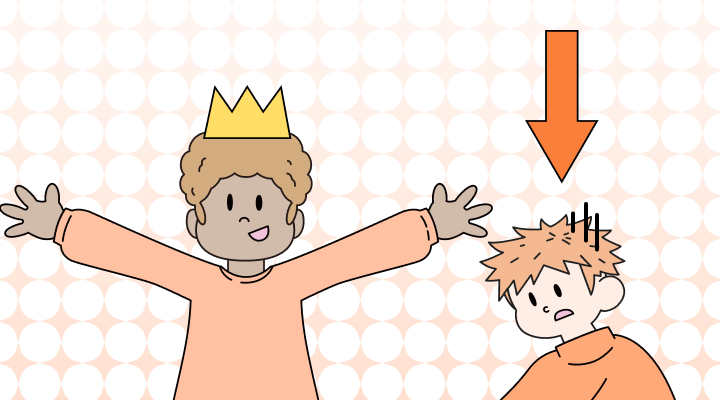Loose is not firmly attached or not tight, while lose is to misplace or fail to win.
The words loose and lose are homophones, which means they sound the same when spoken but have entirely different meanings and uses in written language. Understanding the distinction between these two words is crucial for effective communication.
What does loose mean?
Loose is an adjective that describes something not firmly attached or tightly fixed in place. It signifies a lack of restraint or something that is free, unbound, or not secure.
Example sentence
- The shoelaces on my sneakers are loose.
This suggests that the shoelaces are not tied tightly and may cause tripping.
What does lose mean?
Lose is a verb that denotes the act of misplacing, not being able to find, or failing to retain something, such as losing a game, losing a wallet, or losing a job. It is used to describe the opposite of winning, finding, or retaining.
Example sentences
- I don't want to lose my keys again.
This implies the fear of misplacing or not being able to locate the keys.
- I will lose this chess game.

It's important to pay careful attention to the context and usage of these words in both writing and speech. Misusing "loose" for "lose" or vice versa can lead to confusion and misunderstandings.
How to use the correct word: lose or loose.
The two words only have an extra O difference, but because they are so alike in spelling and pronunciation, they are mistaken for each on a common basis. To differentiate between them, imagine loose as the longer rope and lose as the short rope: loose is looser than lose.
Remember that "loose" is about something not being tightly held or secured, while "lose" pertains to the act of misplacing or failing to win or retain something. This distinction can greatly enhance the clarity and precision of your communication.
Common idioms/phrases
- Break a leg: This is a way to wish someone good luck, often used in the performing arts. It's considered a superstitious alternative to saying "good luck."
- Example: "Break a leg in your audition!"
- Bite the bullet: To face a difficult or unpleasant situation with courage and determination.
- Example: "I had to bite the bullet and tell my boss about the mistake I made."
- Cost an arm and a leg: Refers to something that is very expensive.
- Example: "Buying a luxury car can cost an arm and a leg."
- Once in a blue moon: Describes something that happens very rarely or infrequently.
- Example: "They visit us once in a blue moon."
- Kick the bucket: A humorous or informal way to say someone has died.
- Example: "He kicked the bucket at the age of 90."
- Piece of cake: Something that is very easy to do.
- Example: "The test was a piece of cake."
- Hit the nail on the head: To describe something exactly or to be completely accurate.
- Example: "You hit the nail on the head with that explanation."
- Kill two birds with one stone: To accomplish two tasks with a single action.
- Example: "By going to the grocery store on my way home, I killed two birds with one stone."
- Read between the lines: To understand a deeper or hidden meaning in what someone says or writes.
- Example: "I think there's more to her story; we need to read between the lines."
- Don't cry over spilled milk: To advise someone not to waste time worrying about things that have already happened and can't be changed.
- Example: "Yes, you made a mistake, but don't cry over spilled milk; let's figure out how to fix it."
- Put all your eggs in one basket: To invest all your resources or efforts into one thing, making you vulnerable if it fails.
- Example: "I don't want to put all my eggs in one basket, so I'm diversifying my investments."
- The ball is in your court: It's your turn to make a decision or take action.
- Example: "I've given you all the necessary information, so now the ball is in your court."
- Under the weather: To feel unwell or slightly ill.
- Example: "I won't be able to make it to the party tonight; I'm feeling under the weather."
These idiomatic phrases add color and richness to the English language, and they are commonly used in both casual and formal conversations.
Practice sentences
- Don't let the dog run loose/lose in the park; always keep it on a leash.
- I'm afraid I'll loose/lose my keys if I don't put them in a safe place.
- His shoes were so loose/lose that he almost tripped and fell.
- It's easy to loose/lose your way in a big city if you're not familiar with the streets.
- She didn't want to loose/lose her favorite book, so she made sure to keep it on the bookshelf.
- After the washing machine cycle, her clothes felt much loose/lose than before.
- If you loose/lose the game, you'll have to start over from the beginning.
- The knot on the rope was tied so loose/lose that it wouldn't come undone.
- If you loose/lose your ticket, you won't be able to attend the concert.
- The wind was so strong that it made the window rattling and the curtains go loose/lose.
Want to sound like a native speaker?
Engram’s AI-powered grammar checker makes your English sound like a native speaker’s, suggesting natural English expressions on top of fixing grammar, spelling, punctuation, word order, and vocabulary.

Answer key
Answers:
- loose
- lose
- loose
- lose
- lose
- looser
- lose
- loose
- lose
- loose
Reference














